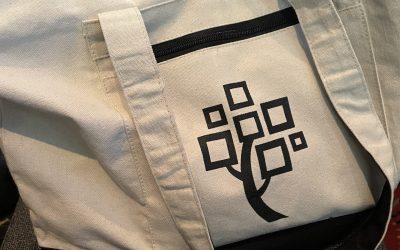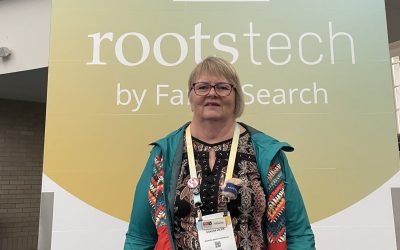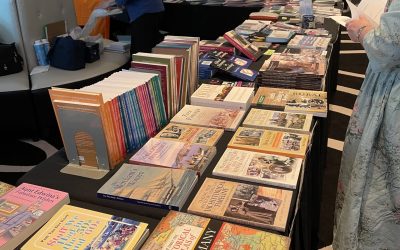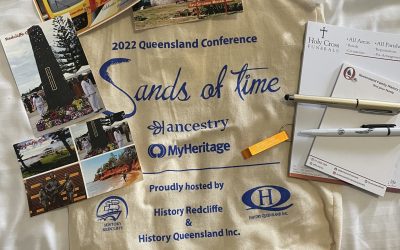Each year Kintalk (Auckland Libraries) issues their Trans Tasman ANZAC Day blog challenge and I always take the opportunity to participate and tell the story of one of my military ancestors. This year my military ancestor is Jack Russell but there are no Russell’s in the family. How and why are two questions that leap to mind and there is a simple answer – Jack Russell was a pseudonym that our ancestor used to join the AIF in WW1. He was underage but the truth was only revealed towards the end of the war.
Thomas Henry Alphonsus Spencer was born in Brisbane in 1899 but moved with his family to South Australia. In 1914 he was in the employ of Messrs Simpson and Son as a tinsmith at Gawler Place, Adelaide and was living with a Mr Boase in Adelaide while his parents (father and step mother) were living at Laura. Thomas ran away from the Boase family on 25 May with another boy leaving a letter indicating that they were heading for Queensland. An inquiry from his father Henry Spencer, in the South Australian Police Gazette, describes Thomas as 15 years old, 5 ft 5 ins tall, thin build, fair complexion, brown hair, grey eyes, medium nose and stoops slightly when walking. Towards the end of Jun 1914 there is a follow up notice saying that Henry had heard from his son.
We catch up with Thomas the following year when he enlisted in the AIF on 22 Apr 1915 in Keswick, South Australia as Jack Russell. In Nov 1915 he was sent to Gallipoli, then a year later on to France in Nov 1916. By 1918 the army had become aware of the real identity of Jack Russell. In Feb 1918 his father Henry Spencer was asked to send a copy of Thomas’ birth certificate. Henry also advised that he had tried to find Thomas but did not know what name he had enlisted under. He knew from a Chaplain McKenzie that Thomas had gone to Egypt. Henry said that he would have willingly let him enlist had he known and he hoped that everything would turn out alright.
To confirm Thomas’ real identity, Henry Spencer had to sign a statutory declaration confirming that the correct name of Trooper Jack Russell, No 1275, 9th/3rd Light Horse was his son Thomas Henry Adolphus Spencer born in 1899 in Queensland. Henry also declared that his son had run away from his apprenticeship and he supposed Thomas had enlisted under the assumed name so that he could not trace him. There was also a statutory declaration from Thomas’ landlord, John Boase stating that Thomas had made his home with him for some years owing to the fact that there were differences between father and son and that Thomas’ mother was deceased. Boase also stated he was receiving a pay allotment of 4/- per diem from Jack Russell and he asked to be kept informed about what was happening to Thomas.
A court martial in London followed in May 1918 and Jack Russell/Thomas Henry Adolphus Spencer was sentenced to 14 days field punishment. A statutory declaration was also signed by Thomas stating that he was indeed Jack Russell and that he had enlisted on 22 Apr 1915 and that he gave his age as 19 instead of his real age of 16 years. He then went back to France and returned to Australia in 1919.
As a veteran of WW1, Thomas obviously felt the need to serve his country again in WW2. This time he enlisted in Maryborough, QLD under the name of Alfred (previously Alphonsus) Thomas Henry Spencer on 28 May 1940 and served in the AIF until 27 Feb 1942. The following day he joined the CMF and served between 28 Feb 1942 and 11 Jan 1946 with 163 days overseas and the remainder of the time in Australia. He had been wounded in action in the Middle East in Apr 1941 with gun shot wounds to both ankles and this probably explains his medically unfit discharge from the AIF and his reenlistment in the CMF in 1942.
For his service in WW1 Thomas received the 1914/15 Star, the British War Medal and the Victory Medal. For his service in WW2 he received the 1939/45 Star, the Africa Star, the Pacific Star, the Defence Medal and the 1939/45 War Medal . Personal correspondence on his attestation file/s indicates that he also received medals from France and Spain. On one of his attestation forms he put that he had seen foreign service in Spanish Morocco. His file/s have been combined and digitised by the National Archives of Australia.
After WW2 he seems to have preferred to use the name Alfred Spencer but his various names do not take away from the fact that he served in both World Wars. I do not know how many soldiers did this but it can not have been many. His half brother Charles Douglas Spencer (the subject of my ANZAC Day blog in 2011) won the Military Medal in WW2 and his story appears here. Due to family issues, it is unlikely that the two half brothers knew each other but I can not help wondering if perhaps they did meet up in Libya where they both saw action. More research might answer that question in the future. Until then, lest we forget.





I am not sure how many men enlisted under assumed names but perhaps one of the most famous is the man remembered as Simpson at Gallipoli who had a donkey. His real name was Kirkpatrick http://www.anzacs.net/Simpson.htm
As for serving in both world wars – I have several men in my family who did that, my step grandfather, my great grandfather and at least one of his brothers. None of them however were on the front line in the second world war like Thomas/Alfred.
Regards
Anne
Thanks for your contribution again Shauna, to our TransTasman Anzac Day Blog Challenge.
My own grandfather ran away at age 15 (from Newfoundland) to sign up with the Royal Navy during WWI, and lied about his age. He served in both wars also. I guess the war seemed like such an adventure for a young lad living in a small fishing village.
What a mysteries our forebears leave behind for us to untangle!
Kind regards SEONAID
It seems so strange that young lads like “Thomas Russell” and Seonaid’s grandfather would enlist to serve at war. I thought it especially interesting that Thomas chose to send Mr Boase his allotment money even though he’d left his apprenticeship.
Fascinating Shauna! He must have been very careful and brave to survive both wars!
Thanks Anne, Seonaid, Pauleen and Sharon for the comments. Good to know that others had very young ancestors who joined up. Mr Boase getting the allotment money was interesting and I felt it showed that he might have been more of a father figure than Henry,who I am still trying to find out more about.
What an incredible story. No, I don’t think there would be too many who have served in both wars. Wasn’t he lucky to survive both?